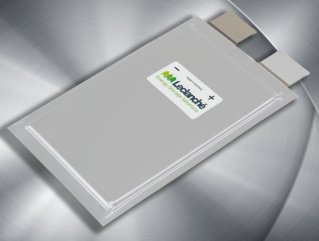Leclanché fire retardant additive cuts battery fire risk

Leclanché has added a special fire-retardant additive to its electrolyte formula composition, claiming it reduces the risk of battery fire by close to 80%.
The German battery cell and energy storage supplier believes it marks a significant breakthrough in the safety of lithium-ion batteries, without compromising cell performance. Its new non-flammable cells will be available for production from Q1 2023.
The move has been validated by Intertek Germany, a third-party testing lab which conducted a series of industry standard nail penetration tests on Leclanché’s 60Ah cell.
Despite the test cells being punctured with the resulting internal short circuit, the cells exhibited a far lower risk of fire than the same cells without the flame retardant additives.
Non-flammable lithium-ion cells have major implications to users in the railroad, truck and bus markets, which are accelerating their investment in hybrid and all-electric powered fleets and who are concerned about the risk of fire with passengers aboard.
Lithium-ion battery recalls are expensive and cause disruption to operations.
Pierre Blanc, chief technology officer, Leclanché, said while the entire battery industry continues to place considerable R&D resources into the development of solid-state batteries, there’s a critical need to enhance the safety of today’s high energy density lithium-ion cell technology.
"Most efforts, until now, adversely impact the performance or longevity of cells," he said.
"Leclanché has been able to develop a high performance and high energy density lithium-ion cell exhibiting high safety characteristics without any negative impact on performance or longevity. As technological advancements continue to be developed, this is a crucial improvement in state-of-the-art cell technology, that does not require breakthrough technology that could still be several years away from commercial availability."
Leclanché draws on decade of water-based battery manufacturing
Leclanché battery cells are manufactured by the Company in its production facility located in Willstätt, Germany.
Electrodes are manufactured in a water-based process that has been validated in commercial production over the last 10 years – rather than by using organic solvents such as NMP – resulting in a significantly reduced environmental impact and a lower carbon footprint.
CEO Anil Srivastava said: “Our breakthrough should encourage manufacturers waiting on the side-lines for next generation solid-state batteries to move forward with their advanced fleet vehicle designs today – safe lithium-ion batteries have arrived and Leclanché has them.”
Last week the company completed development of a third-generation marine battery system designed to support the needs of ship builders in producing 100% electric and hybrid marine vessels.
The Navius MRS-3 system improves upon Leclanché’s MRS-2 which already powers a broad range of ferries, container ships and specialty vessels.






